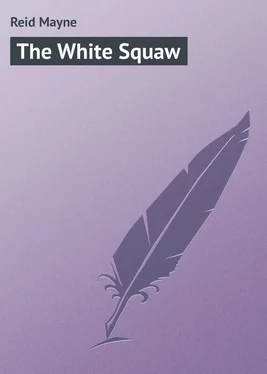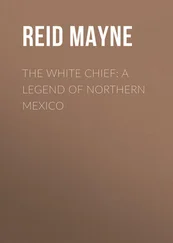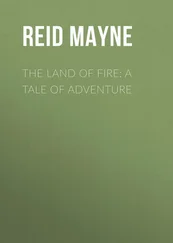Mayne Reid - The White Squaw
Здесь есть возможность читать онлайн «Mayne Reid - The White Squaw» — ознакомительный отрывок электронной книги совершенно бесплатно, а после прочтения отрывка купить полную версию. В некоторых случаях можно слушать аудио, скачать через торрент в формате fb2 и присутствует краткое содержание. Жанр: foreign_prose, на английском языке. Описание произведения, (предисловие) а так же отзывы посетителей доступны на портале библиотеки ЛибКат.
- Название:The White Squaw
- Автор:
- Жанр:
- Год:неизвестен
- ISBN:нет данных
- Рейтинг книги:3 / 5. Голосов: 1
-
Избранное:Добавить в избранное
- Отзывы:
-
Ваша оценка:
- 60
- 1
- 2
- 3
- 4
- 5
The White Squaw: краткое содержание, описание и аннотация
Предлагаем к чтению аннотацию, описание, краткое содержание или предисловие (зависит от того, что написал сам автор книги «The White Squaw»). Если вы не нашли необходимую информацию о книге — напишите в комментариях, мы постараемся отыскать её.
The White Squaw — читать онлайн ознакомительный отрывок
Ниже представлен текст книги, разбитый по страницам. Система сохранения места последней прочитанной страницы, позволяет с удобством читать онлайн бесплатно книгу «The White Squaw», без необходимости каждый раз заново искать на чём Вы остановились. Поставьте закладку, и сможете в любой момент перейти на страницу, на которой закончили чтение.
Интервал:
Закладка:
The first white-headed, wrinkled, and with traces of a life spent in action.
He presented an appearance at once striking and picturesque as he stood beneath the shade of a tall palm tree.
His dress was half Indian, half hunter.
A buckskin shirt, leggings, and moccasins richly worked with beads; a wampum belt crossed his shoulder; a scarlet blanket hung at his back, its folds displaying a figure which, in its youth, must have been superb.
It still showed, in the broad chest and powerful limbs, almost its pristine strength.
Upon his head he wore a band of bead-work, in which were stuck three wing feathers of the war-eagle.
His face was full of dignity and calm repose.
It was Oluski, the Seminole chief.
His companion was no less remarkable.
As he lay stretched upon the ground, leaning on one elbow, his face upturned towards that of the old man, a striking contrast was presented.
Like Oluski, his dress was also half Indian, half hunter, but more richly ornamented with bead-work, whilst a certain careful disposition of the attire, seemed not inappropriate to his youth and bearing.
It was, however, in his features that the difference was chiefly apparent.
In the attitude he had assumed, a ray of sunshine piercing a break between the trees, illumined his countenance.
Instead of the coppery colour of the Indian, his skin was of a rich olive, an unmistakeable sign that white blood flowed in his veins.
He was remarkably handsome. His features were regular, well defined, and admirably chiselled. His eyes were large and lustrous, overarched by a forehead that denoted the possession of intellect.
Like the old man, he wore a plume of eagle’s feathers on his head, as also a wampum belt; but in lieu of a blanket, a robe made of skin of the spotted lynx was thrown over his shoulders.
Oluski was the first to speak.
“Must Wacora depart to-day?” he asked.
“At sunset I must leave you, uncle,” replied the youth, who was his nephew, already spoken of as Wacora.
“And when do you return?”
“Not till you come back from Tampa Bay. I have still much to do. My father’s death has still placed me in a position of trust, and I must not neglect its duties.”
“I and my tribe depart from this place in seven days.”
“And Nelatu, where is he?” asked Wacora.
“I expected him ere this. He and Red Wolf went away together.”
Oluski was ignorant of what had happened.
“They went upon a hunting excursion, and if not able to return in time, were to go on to the bay, and there await our coming.”
“You still make your summer encampment upon the hill. I have not seen it since I was a boy. It is a shame, too, since out people are buried there.”
“Yes; and, therefore, it is dear to you as to me.”
“And yet the whites have a settlement near it. It was your gift to them, uncle, I remember that.”
Wacora said this with an accent that sounded almost sneering.
The old chief answered warmly.
“Well, I owed their chief a debt of gratitude, I paid it. He is my friend.”
“ Friend !” said Wacora, with a bitter smile; “since when has the pale-face been a friend to the red man?”
“Still unjust, Wacora. I thought you had changed. The foolish sentiments of youth should give place to the wisdom of age.”
Oluski’s eye brightened as he spoke. His heart swelled with noble feelings.
“I do not, will not, trust in the white man!” answered the young chief. “What has he done to our race that we should believe in him? Look at his acts and then trust him if you can. Where are the Mohawks, the Shawnees, the Delawares, and the Narragansets? How has the white man kept faith with them?”
“All white men are not alike,” responded Oluski. “A pale-face befriended me when I required aid. The deed always weighs against the word. I could not be ungrateful.”
“Well, Oluski’s gratitude has been proved,” returned Wacora. “But let him beware of those on whom it has been bestowed.”
The old chief did not answer, but stood in an attitude of thought.
Ideas, slumbering till now, were awakened by Wacora’s words. An unknown feeling appeared to gain possession of him.
So contagious is mistrust.
The nephew, too, seemed lost in thought. Still lying upon the ground he idly plucked the petals of a flower growing by his side.
The conversation was at length resumed by his uncle.
“I have nothing to charge the white chief with or his people. Our tribe yearly visits the place. We are welcomed on arrival, respected during our stay, and unmolested at leaving. No, Wacora, these white men are not like others.”
“Uncle, all white men are the same. They make their homes in our land. When space is needed, the Indian must yield to them. What faith or friendship can exist where there is no equality? Do not the Seminoles suffer at this very moment from the white man’s ambition? Are not their hunting grounds profaned by his presence – their towns pillaged for his fancied wrongs? Your friend is a white man, and, therefore the enemy of your race.”
Wacora spoke passionately.
The Indian is not always a savage. The reverse is often the case. In every tribe there are men of education, of quick intelligence, and with a high sense of right.
Both Oluski and Wacora were superior men, in the sense that education and natural intelligence gave the stamp of superiority over ignorance and superstition.
Chapter Eight.
Sansuta
As we have said, Wacora had white blood in his veins.
His mother was a Spaniard, the daughter of a planter, who had lived near the town of Saint Augustine.
Almost a child at the time of her capture, she eventually forgot her own kindred, and became devoted to the chief who had been her captor.
It ended in her becoming his wife, and the mother of Wacora.
Albeit that in Wacora’s veins white blood flowed, his soul was Indian, and he loved his father’s people as if he had been of their purest blood.
He was a patriot of the most enthusiastic stamp.
His judgment, clear in most things, was clouded in estimating the qualities of the white race, simply because he had seen the worst phases of their character, its cupidity and selfishness.
Oluski would have answered his companion’s address, but the same train of disagreeable thought that had entered his mind at the first part of Wacora’s speech held him silent.
Wacora proceeded.
“Enough, uncle. I did not intend to trouble you with my feelings; I meant only to warn you against danger, for danger exists in all dealings with the pale-faces. They, as ourselves, are true to their instincts, and those instincts blind them to justice. Your friend, the White Chief, may be all you think of him. If so, he will rather admire your caution than blame you for mistrust; natural, because not causeless.”
Whatever reply Oluski intended, was postponed by the arrival of a third person, at whose coming Wacora sprang from the ground with a gesture of surprise and admiration.
The new comer was an Indian maiden. A perfect wood nymph.
She was a girl of slight stature, beautifully rounded limbs, with hands and feet unusually small.
Her dress was simplicity itself; yet so gracefully worn that it seemed the result of laboured art.
A tunic of bright-coloured cloth, clasped round her neck by a silver brooch, descended to her ankles, while around her waist was twisted a scarf of many colours; over her shoulders fell a bright cloth mantle, bordered with shells worked into delicate patterns; upon her head was a bead-work cap, trimmed with the plumes of the white eagle, like a fringe of newly-fallen snow; her wrists were encircled with bead bracelets, whilst embroidered mocassins covered her small feet.
Читать дальшеИнтервал:
Закладка:
Похожие книги на «The White Squaw»
Представляем Вашему вниманию похожие книги на «The White Squaw» списком для выбора. Мы отобрали схожую по названию и смыслу литературу в надежде предоставить читателям больше вариантов отыскать новые, интересные, ещё непрочитанные произведения.
Обсуждение, отзывы о книге «The White Squaw» и просто собственные мнения читателей. Оставьте ваши комментарии, напишите, что Вы думаете о произведении, его смысле или главных героях. Укажите что конкретно понравилось, а что нет, и почему Вы так считаете.












